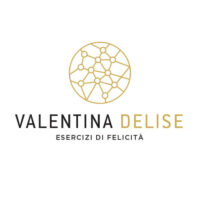In Patrizia Falcone‘s irreverent universe, humor becomes a powerful form of expression to tackle crucial issues, especially those related to mental health. With her web project “Quello che le donne non dicono” (“what women don’t say”), Patrizia has opened a window into the female world, dismantling stereotypes with a touch of irony and wisdom.
In an intimate conversation, we explored Patrizia’s creative process, which navigates between instinct and reasoning. In particular, the heart of her work is “body positivity”, a theme she addresses uniquely and conveys on social media with the aim of innovating the way the message is delivered, even in an environment that can sometimes be unwelcoming. But Patrizia confronts prejudices directly, working to change perspectives and make even those seemingly unyielding in their ideas reflect.
Because true comedy has the power to shape self-perception and dialogue, even about femininity.
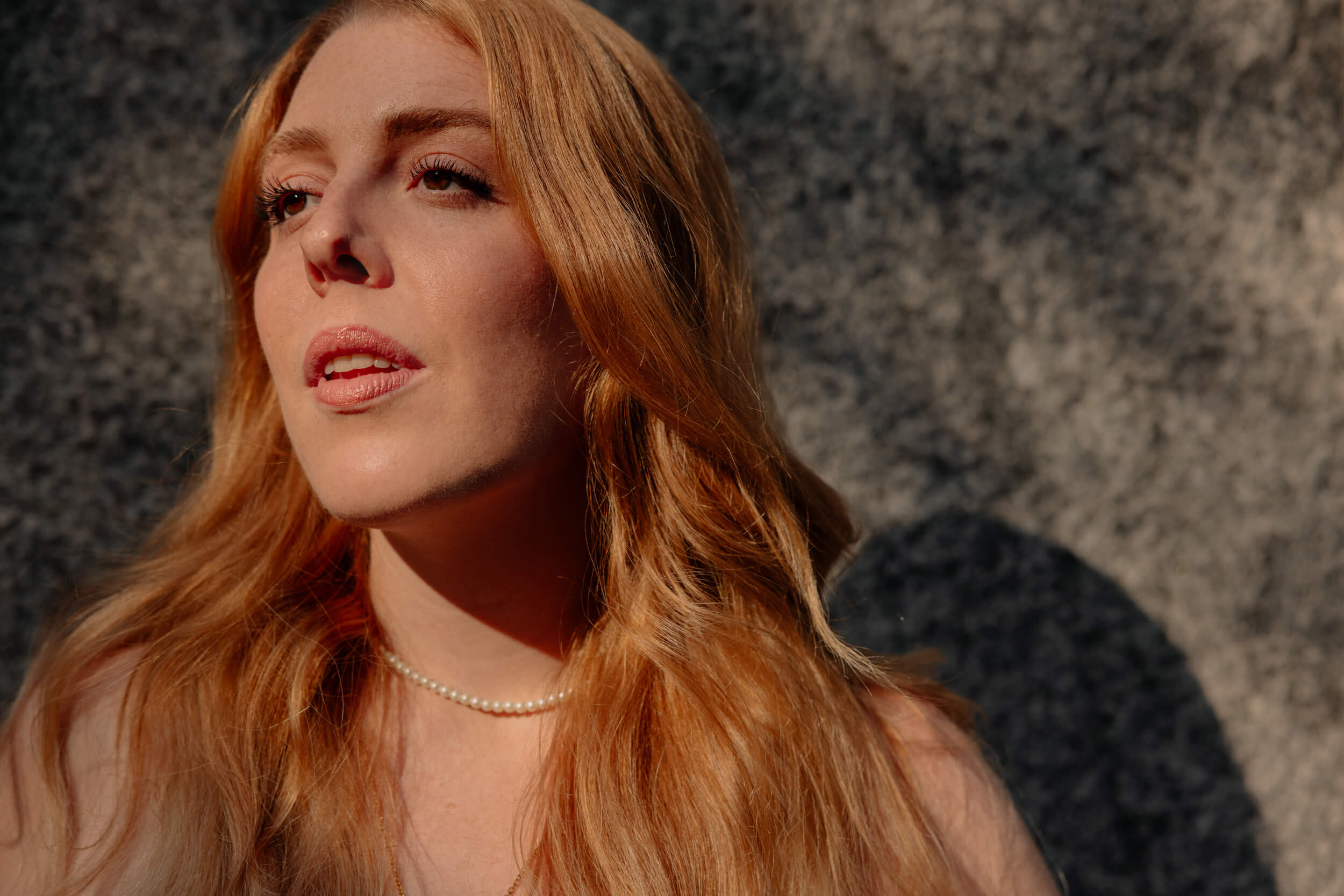
You are a comedian, and you use the power of social media to talk, even with irony, about important topics related to mental health, which is something we always want to talk about: when do you feel most creative and eager to share what’s happening to you? Do you have a particular creative process, or are you more instinctive?
Both things. At the beginning, especially, I had a much more instinctive approach because it stemmed a lot from what surrounded me, and I wanted to take it and put it in video format to allow people to watch it. Now, I won’t deny that I think about it a bit more, also because I’ve already covered some topics, as I always try to renew what I do and not bore the audience. Indeed, a message like that of body positivity, for example, if ingrained in a certain way all the time, might even annoy those who may really need to receive that message. Sometimes a different interpretation is necessary, and this leads me to have a creative process different from the instinctive one, more reasoned, trying to understand the goal I want to achieve and then finding the means to get there.
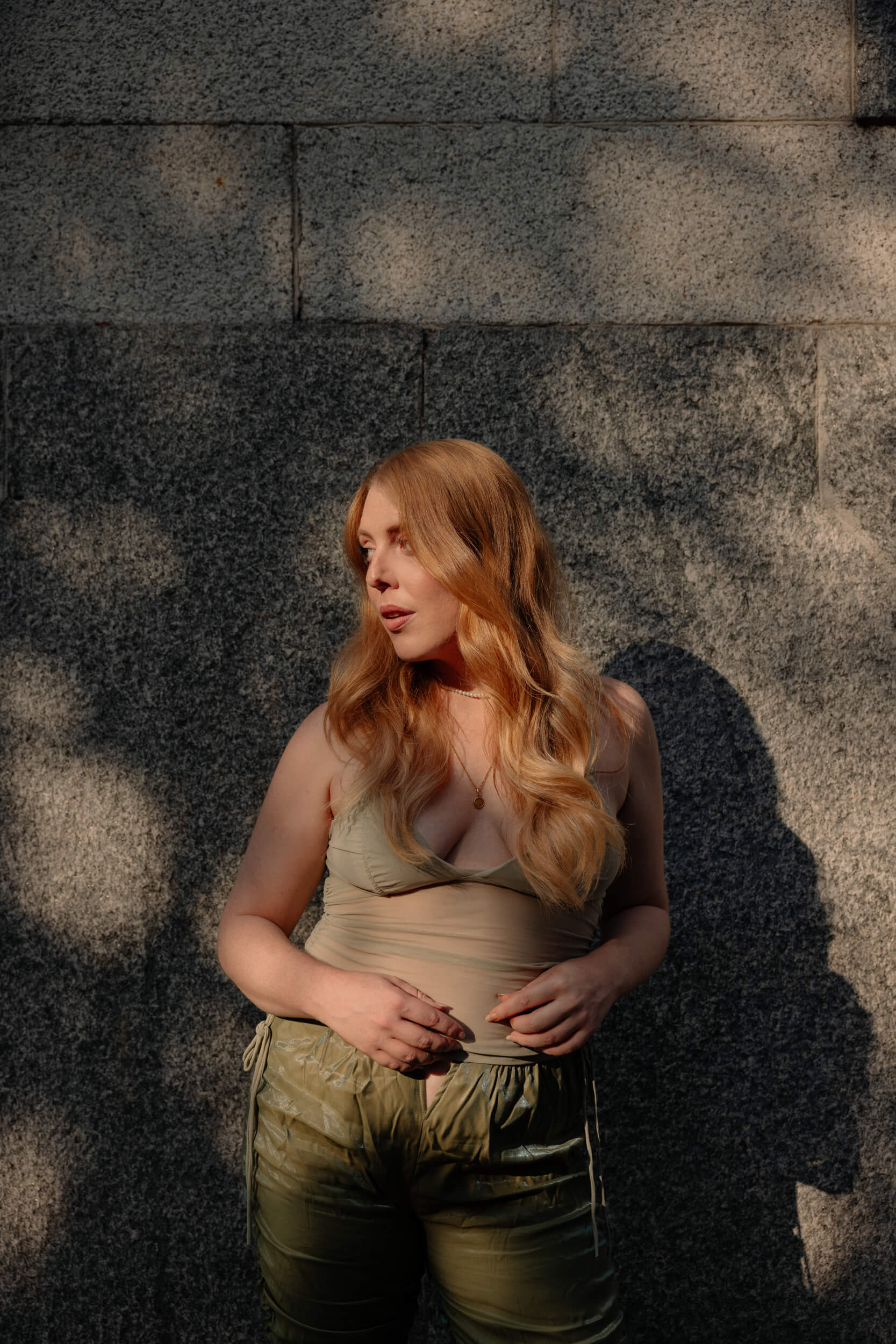
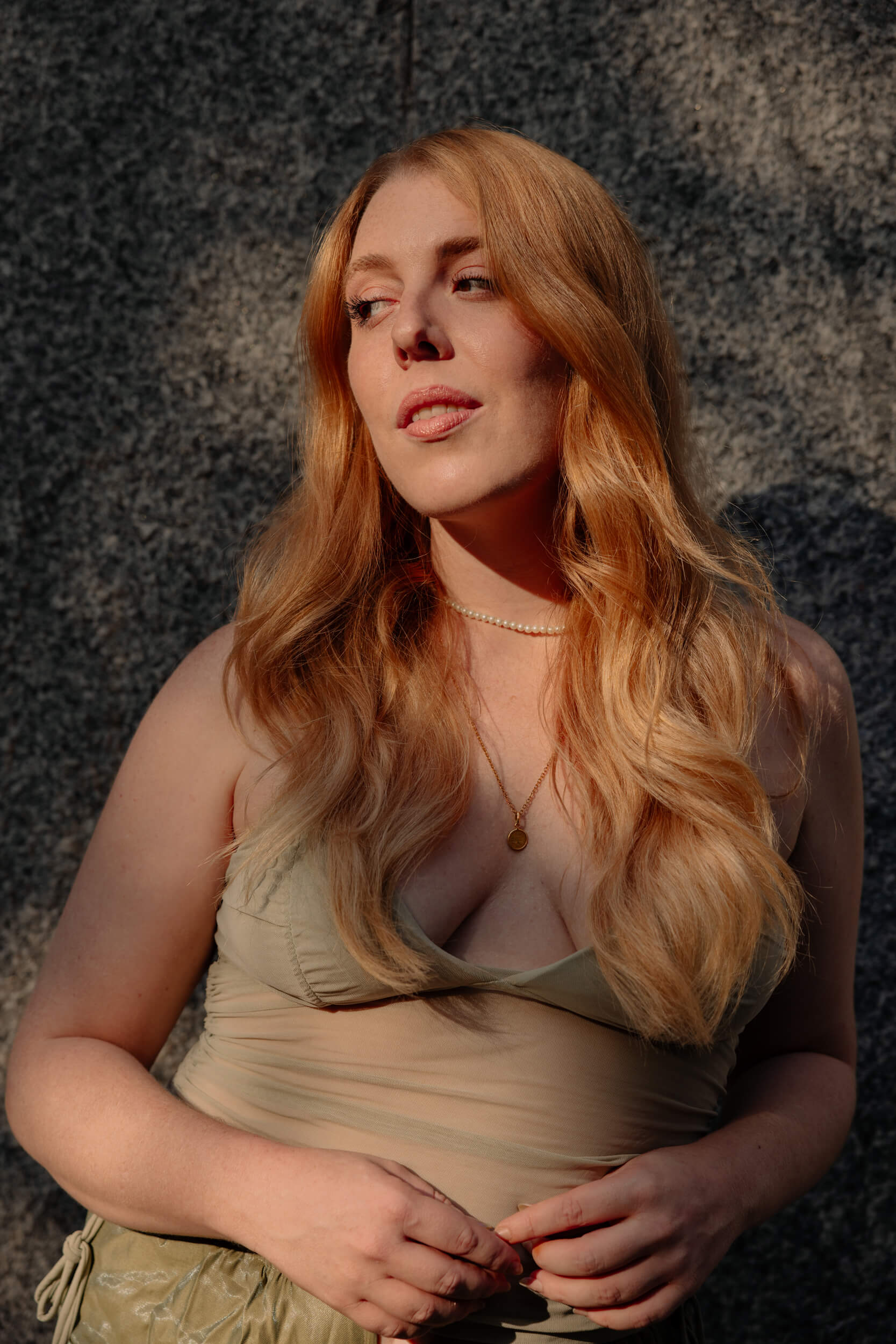
You often talk about body positivity, and I love the way you do it; you’re truly unique, and trust me, you’re a great inspiration for everyone. And especially, you do it on social media, which is not always such a receptive environment: when is it important for you to continue talking about body positivity? And what is the thing that has made you the angriest so far?
I think there has been a great evolution here too. Certain values are part of both me and my collaborator, so we always proposed them in what we did. However, we realized at a certain point that conveying the message through a video, or perhaps just the moral aspect, was not such a direct process, and it didn’t really help some people deeply. So, we started to be more direct, trying to dig deeper into the message to get to the heart of the matter.
Lately, when you go beyond the target audience – people who want to hear that message and whom you usually relate to, who are a bit your community, or people who, for better or worse, experience the same discomfort as you or feel not accepted by society in their bodies – those who are bothered by it come up. The thing that hasn’t made me so much angry but that I rather find amusing is that a girl who insulted me randomly for about two years, saying to me things like, “You’re fat”, “You’re ugly”, “Your house is a bunker”, sent me a message the other day apologizing because after two years, she realized she had written horrible things to me which she wouldn’t even want to say even to the person she hated the most. She realized it was just a strange defense mechanism that led her to this. I realize, then, that I’m doing the right thing, persisting because someone realizes it. Maybe after all the videos I recently published about people insulting me in a somewhat nonsensical way, she realized she was one of them, so she wanted to apologize.
It’s a beautiful thing because, in one way or another, what you say and try to convey eventually reaches not only people who already agree with you or need to hear what you say, and it’s even better to know that you’ve changed the mind of a hater or someone who thought differently.
The point is that these people often don’t think differently; they’ve simply been ingrained with a specific message and try to perpetuate that pattern always. Then, especially when you see someone in a video, it’s as if you don’t compare them to yourself as a person but put them on a sort of pedestal, and society has always taught us that only those who are perfect, beautiful, who never make mistakes, who are the amazing performer, should have that pedestal. Slowly, breaking down this barrier between social media and the common user watching content can help us understand that we’re all in the same boat.
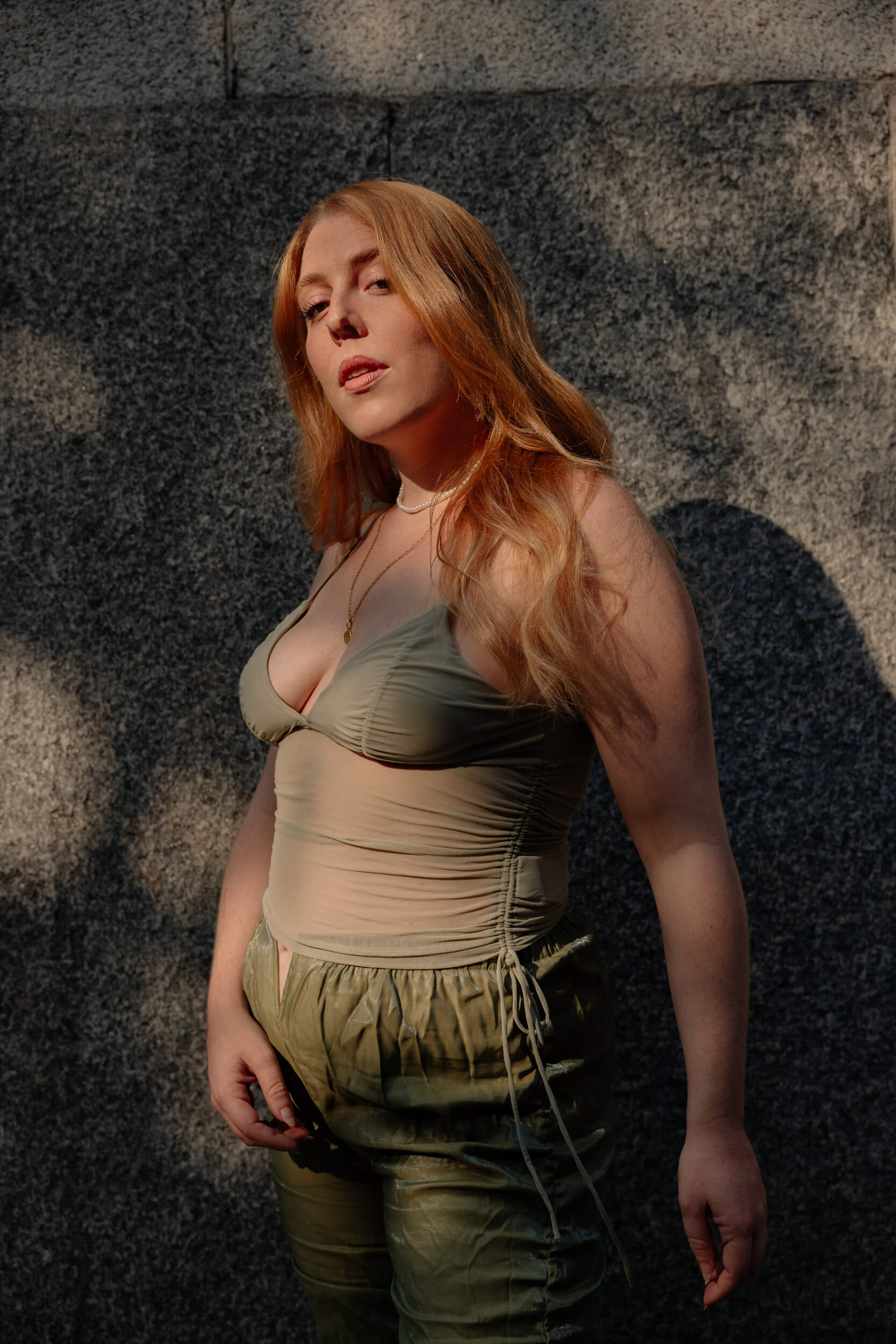
“I realize, then, that I’m doing the right thing, persisting because someone realizes it.”
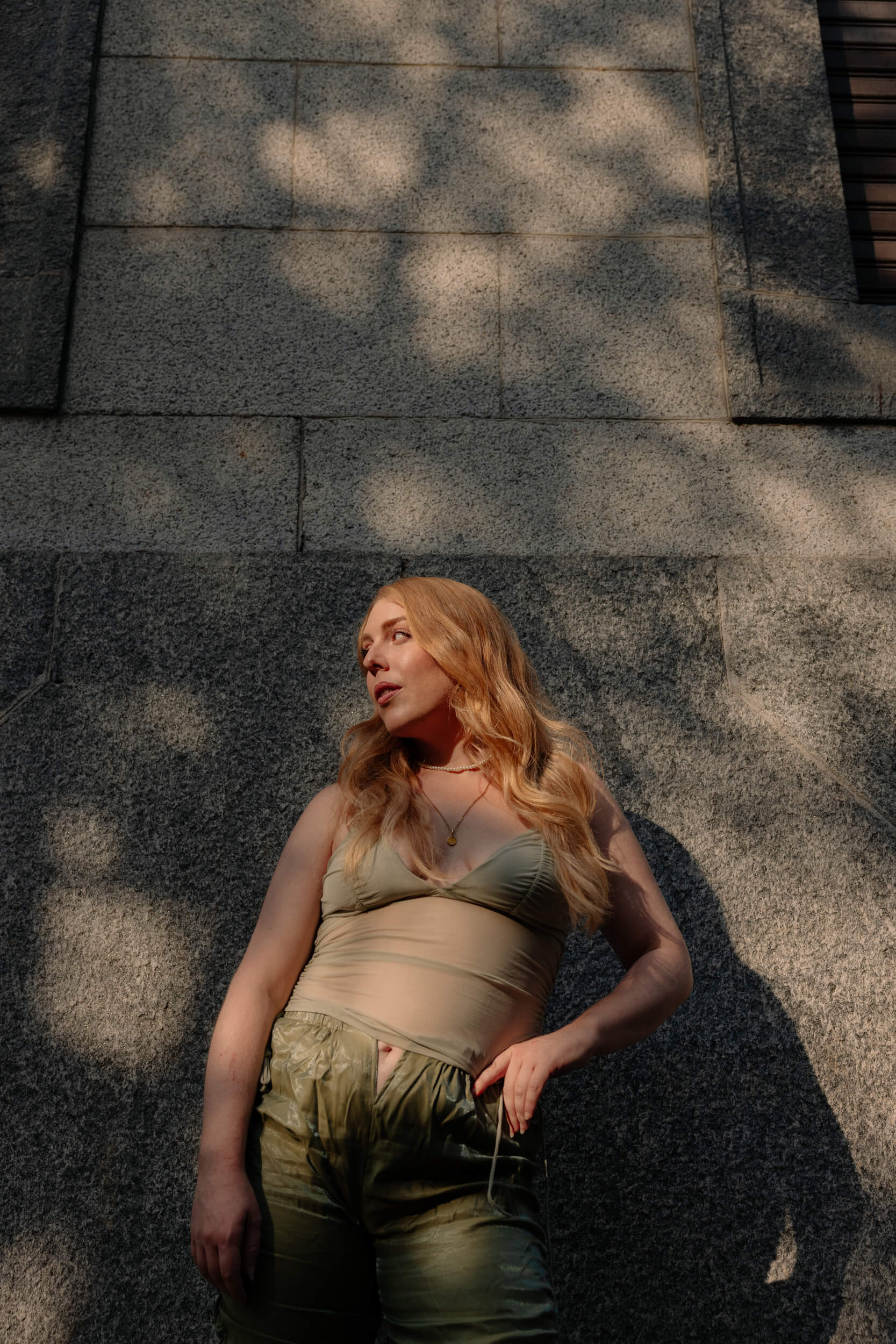
What would you say is your relationship with your body? Have you ever fought against it to get where you are? Or have you preferred to “embrace” it?
I can’t tell you a specific point where I realized that I had to start separating my body from the perception of it that I have and that others have. If I look back to my younger self, I don’t remember ever feeling clumsy in my body until other people insinuated it in me, from comments like, “Aren’t you eating too much?” to the classic “Maybe you should lose weight”. In this way, the thought gradually instilled itself in me; I went through difficult moments with my body, but more during adolescence, a transitional period. Then, I don’t exactly remember when, as I grew up, around the age of 20, I actually started to love my body as it was. It’s as if I realized that there are standards, but we don’t necessarily have to adhere to those standards and be perfectly right and beautiful as we are. It certainly took me time; I unconsciously deconstructed everything that had been inserted into my head and slowly managed to see my body, as I often say in my content, as a casing, something that holds together everything we have inside—our values, thoughts, desires.
The body is an addition, an accessory; we don’t necessarily have to take care of it to the extreme of our forces and then perhaps neglect the rest, which is much more important.
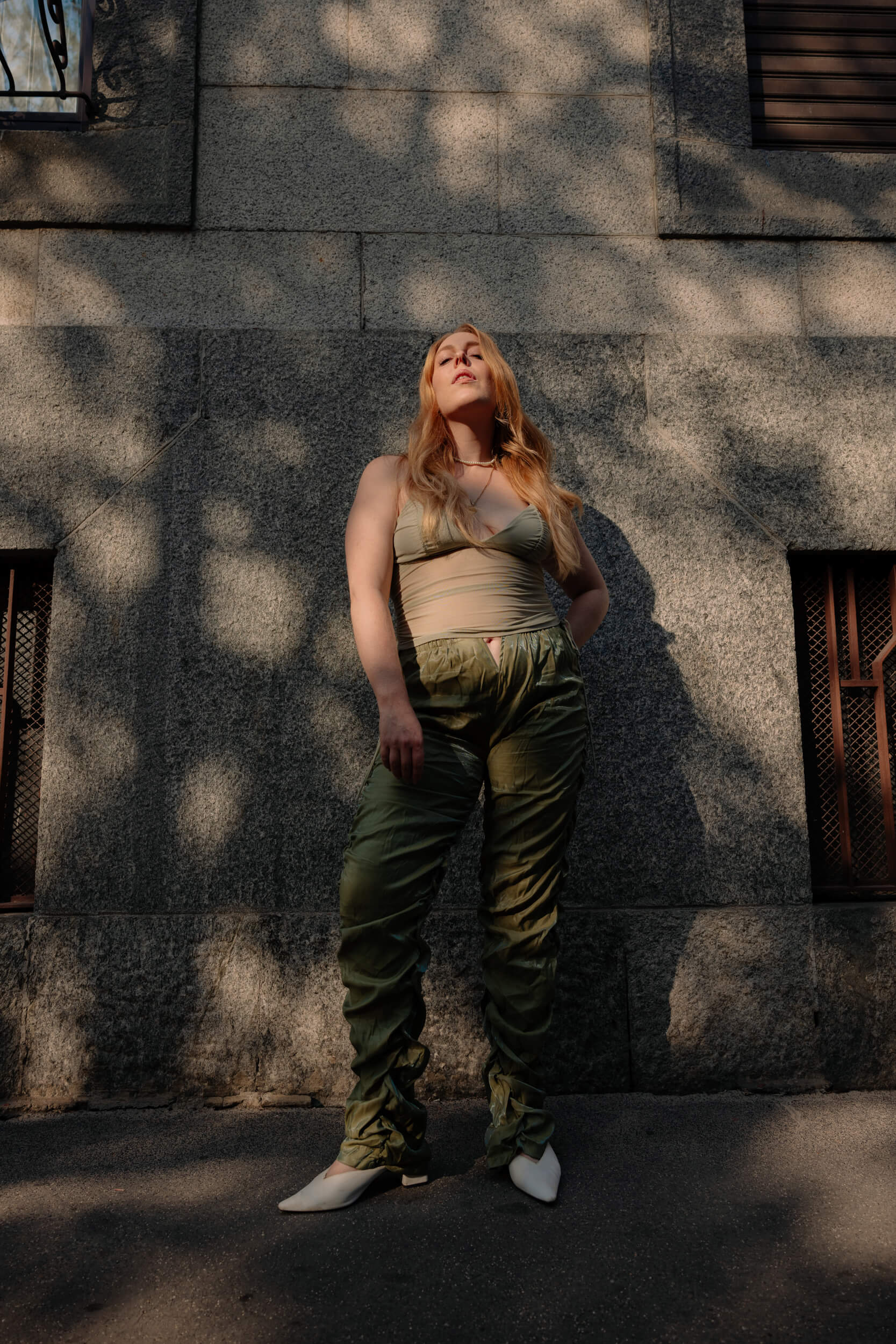
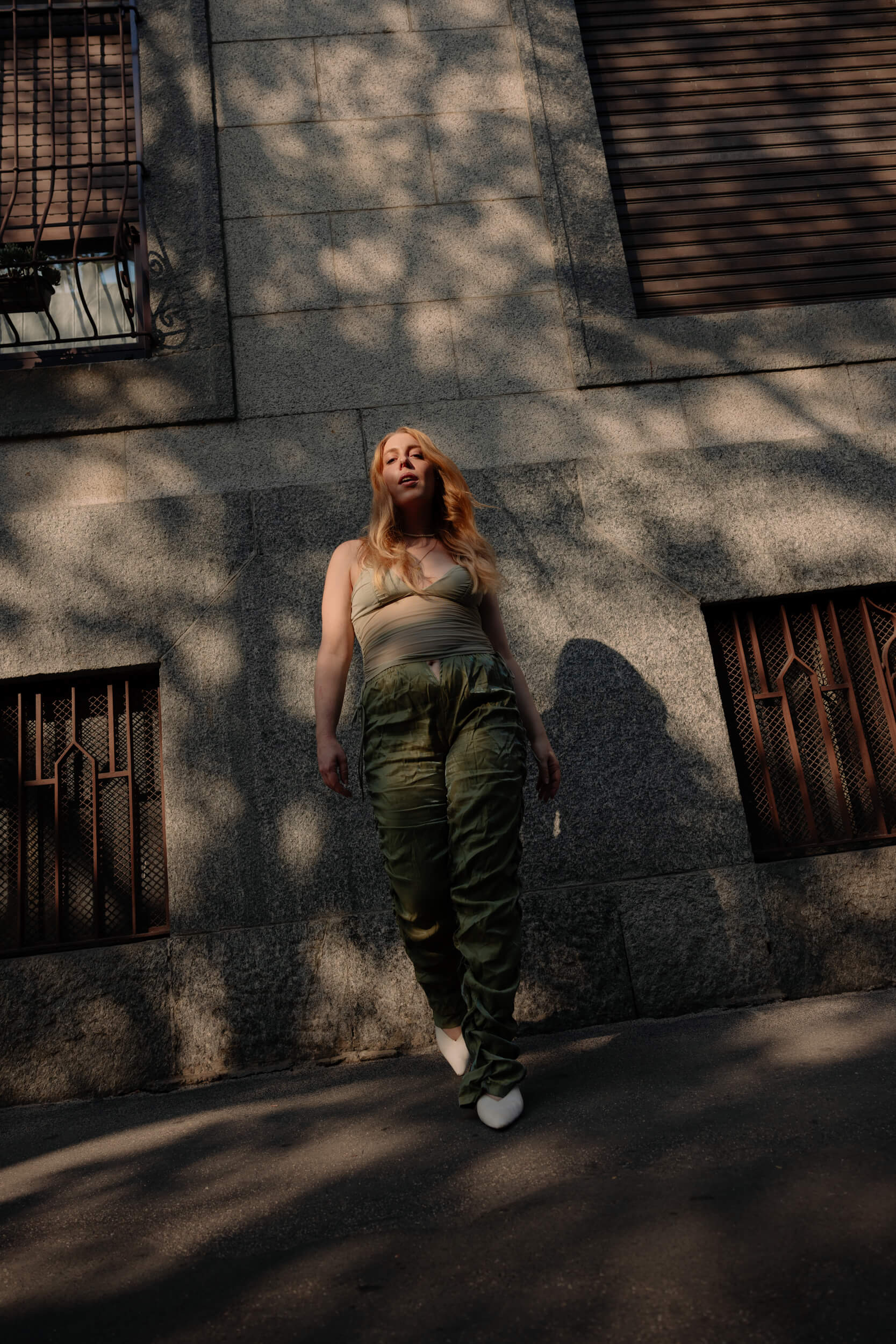
On the other hand, when I was little, I don’t know if it’s because of what I saw, considering that there were no social media but there was television, and my examples were the TV showgirls, or perhaps a bit because of my family, I grew up with the idea that thinness was equivalent to success. And I find this thought in many people I happen to talk to, to tell the truth. It’s devastating if you think about it.
Yes, it’s as if you start at a disadvantage, with the thought that you don’t deserve anything, don’t deserve success, don’t deserve to be called “beautiful” because there’s something wrong with your body.
Exactly. When I received compliments, even silly things like, “How well you’re dressed”, “I like the eyeshadow you’re wearing”, I would close up within myself, almost shocked. At the same time, when perhaps I received compliments professionally, I stiffened and thought, “How is it possible, I’m not thin, I’m not as beautiful as in my head I should be”. My twenties, if I could burn them from this point of view, I would.
… it’s hard to get out of it. Thinking back, moving to Rome from the province may have helped me too: the big city helped in the reconstruction of myself because I was throwing myself into a situation that was different, so I was rebuilding an image of myself that I liked, trying to eliminate those voices.
Indeed, I come from Vicenza, a very small and provincial city, and Milan made me feel much freer.
Yes, it’s the patterns that have perpetuated maybe even in groups of friends. Also, our time spent with people we already know lead us to always retrace the same steps, while sometimes, totally detaching helps us build new parts of ourselves.
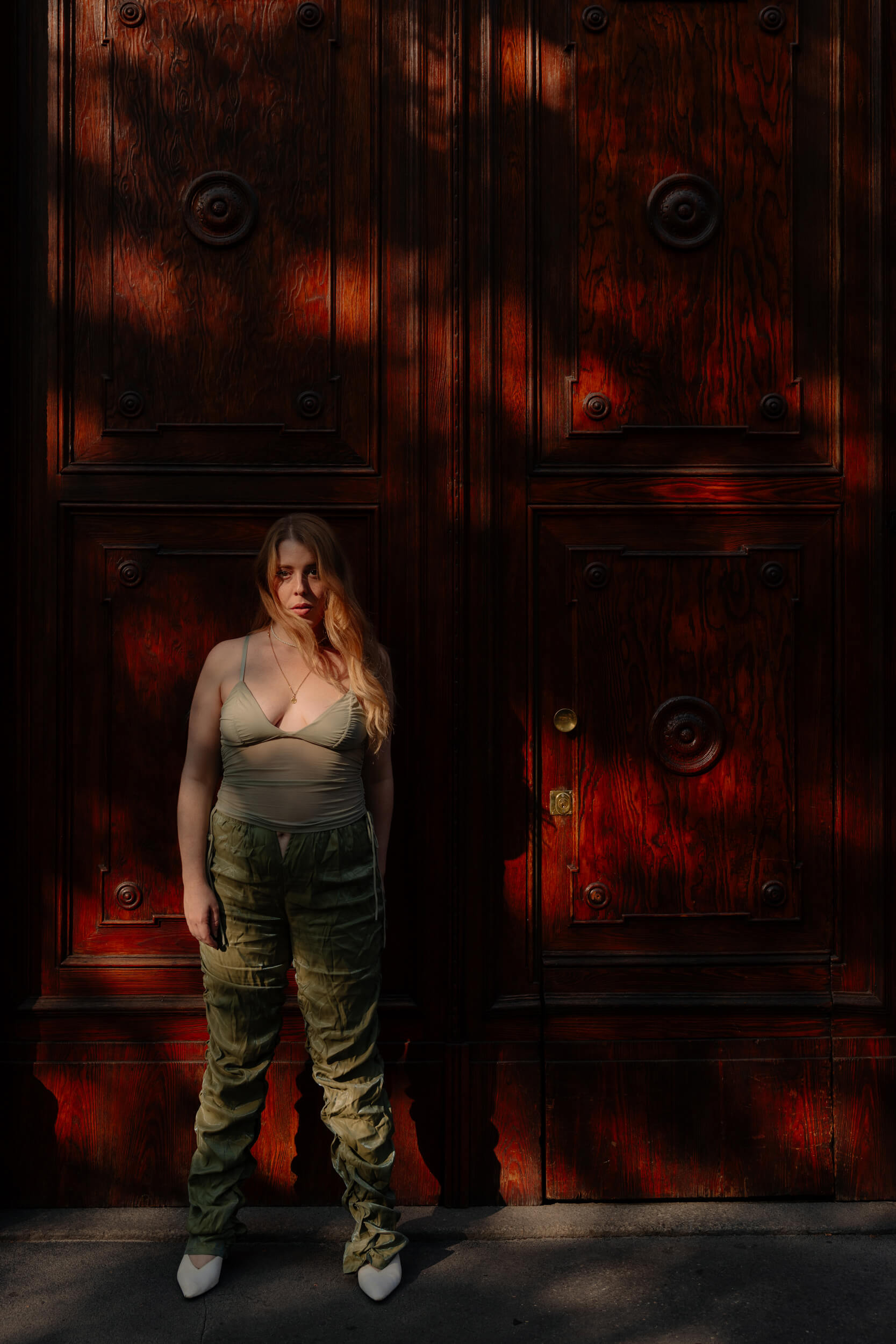
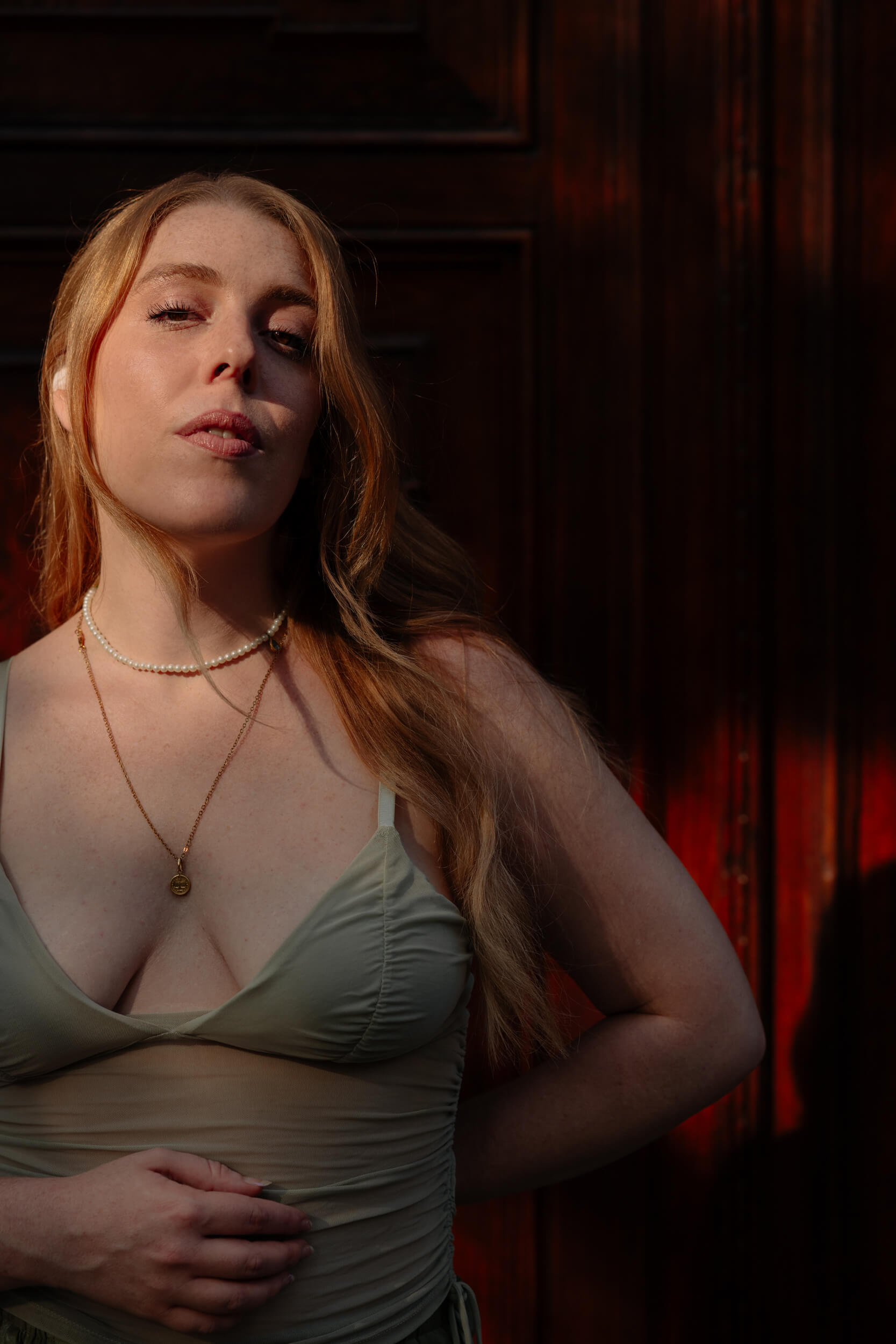
“Rebuilding an image of myself”
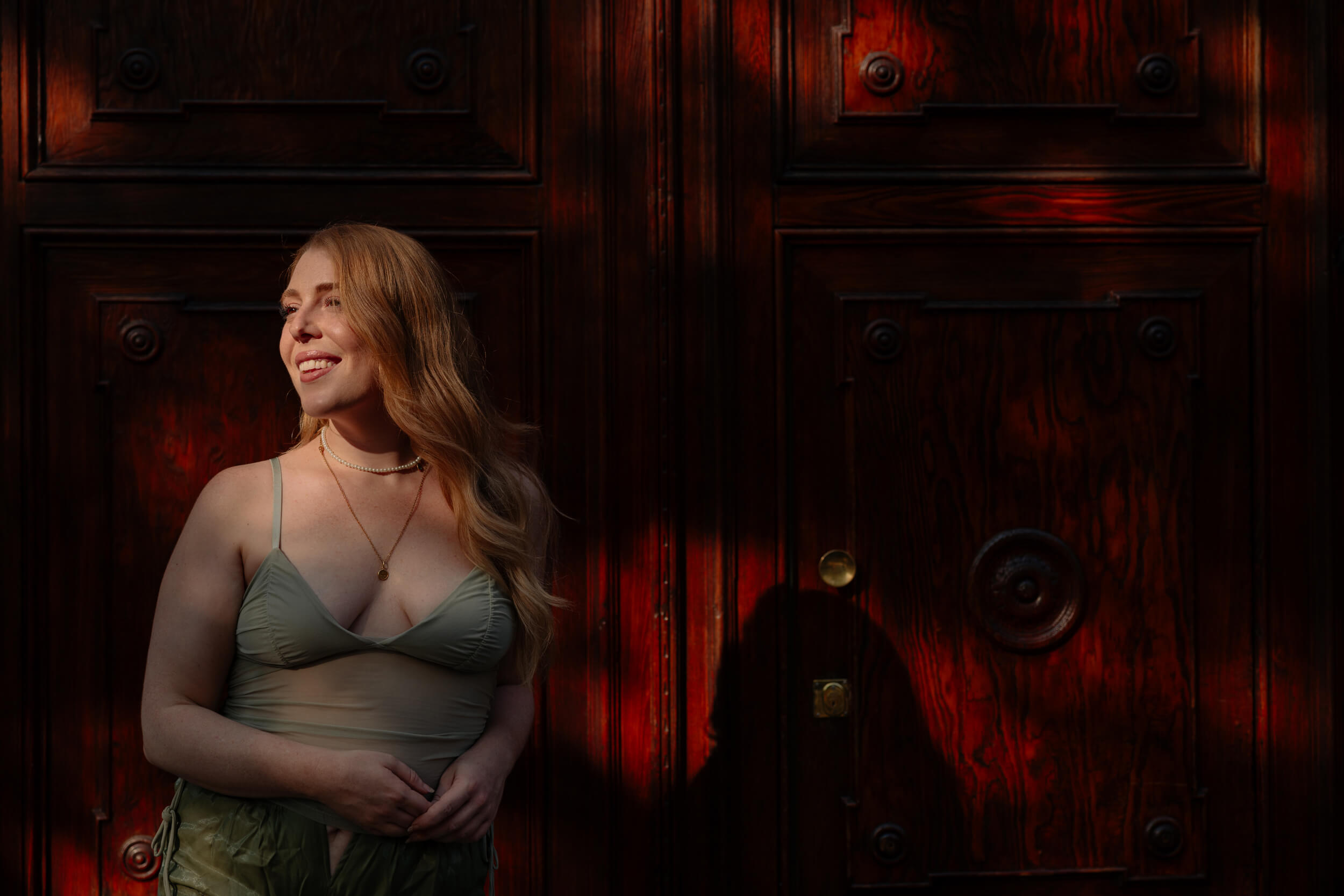
What does feeling safe mean to you?
Good question. It depends because there are various types of security. My mental security is certainly the comfort zone, so staying within something I already know. However, at the same time, this doesn’t stimulate me; in fact, I’m someone who seeks risk: I always try to challenge myself and seek confrontation. So, I often try to get out of the comfort zone, experiment with new types of videos where maybe I don’t yet feel totally comfy, I launch myself trying to avoid staying inside it. I know that my comfort zone gives me strength and makes me feel calm, but at the same time, I know that it doesn’t help me grow.
Feeling the freedom to take a leap is a big deal. Even in my work, sometimes I feel a bit stuck; I want to make myself heard more and make the voices of certain people heard more. We have to take risks: maybe something doesn’t work out in the end, but at least you can say you tried and expressed something of your own that you felt at that moment. If it goes well, then it’s cool; if it goes wrong, it’s okay too.
Yes, or maybe you learn from your mistakes, adjust your aim for the next time.
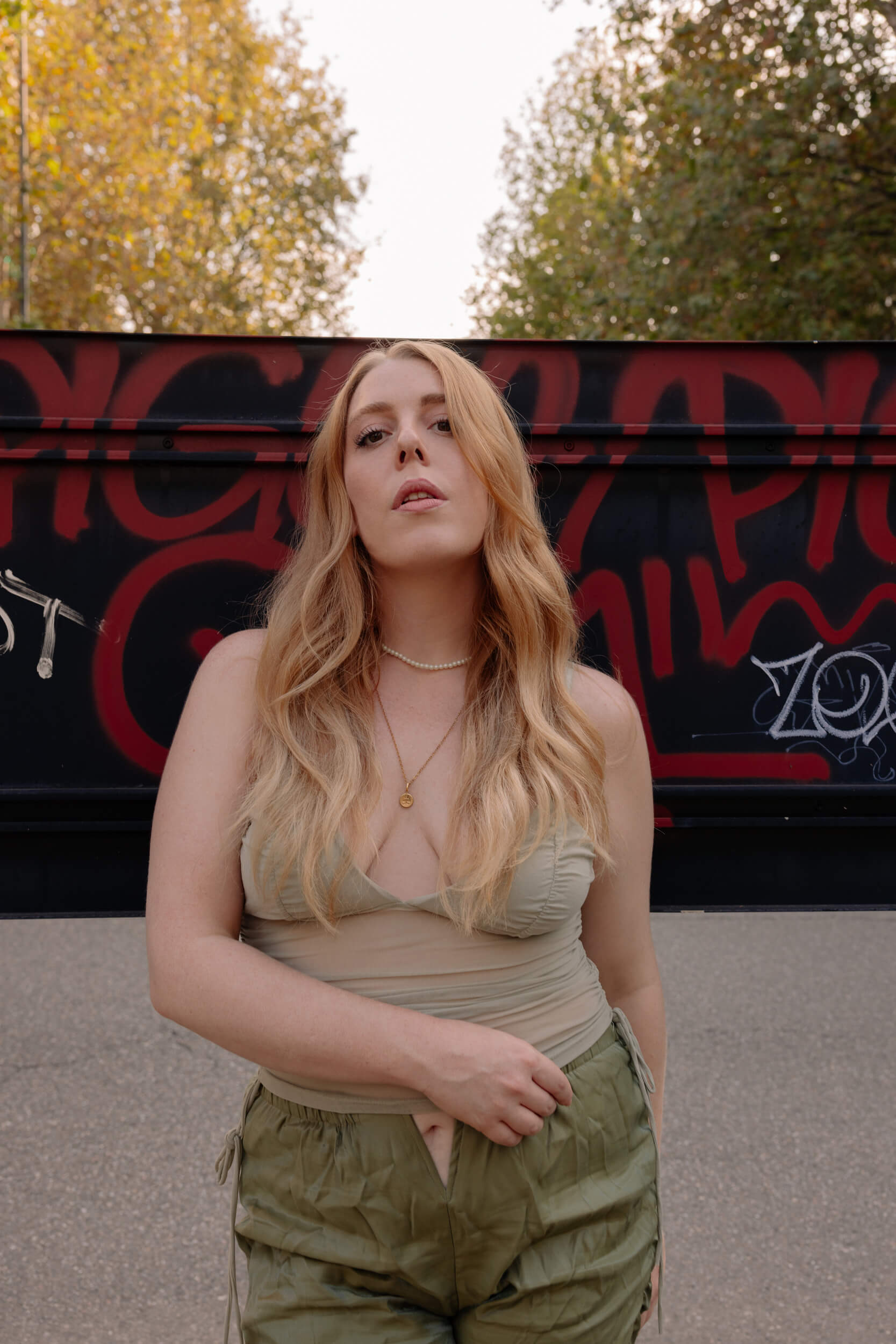
Often in the comments I read on your posts, I see people who feel represented. How important is proper representation to you in general?
It’s fundamental. Maybe this is what stimulated me to do what I do. Since I was a child, I always dreamed of theater and cinema, and I saw them as unattainable environments because with my physique, I certainly wasn’t the classic person fit to be an actress. I have a few extra pounds that would have limited me to certain roles, so I started with this idea, but at the same time, I couldn’t wait for me to arrive to break the molds. So, when on social media I realized that through my physique, I could make people feel good, make them wake up without thinking they were fat but looking at themselves and saying, “Ah, how good that sweater looks on me!”, I realized that something could change.
Then, indeed, the perception is changing: we notice it in movies, on TV, in the media; there’s often “washing” too, but if initially, the idea of “washing” bothered me, now I’m still happy because the important thing is that whoever watches this kind of content still feels represented, whether it’s false or not, it matters that they don’t feel excluded. I’m happy to make someone laugh, and I hope that as we go on, more and more people will feel part of something that shouldn’t be elitist because entertainment, cinema, and theater should also tell our stories.
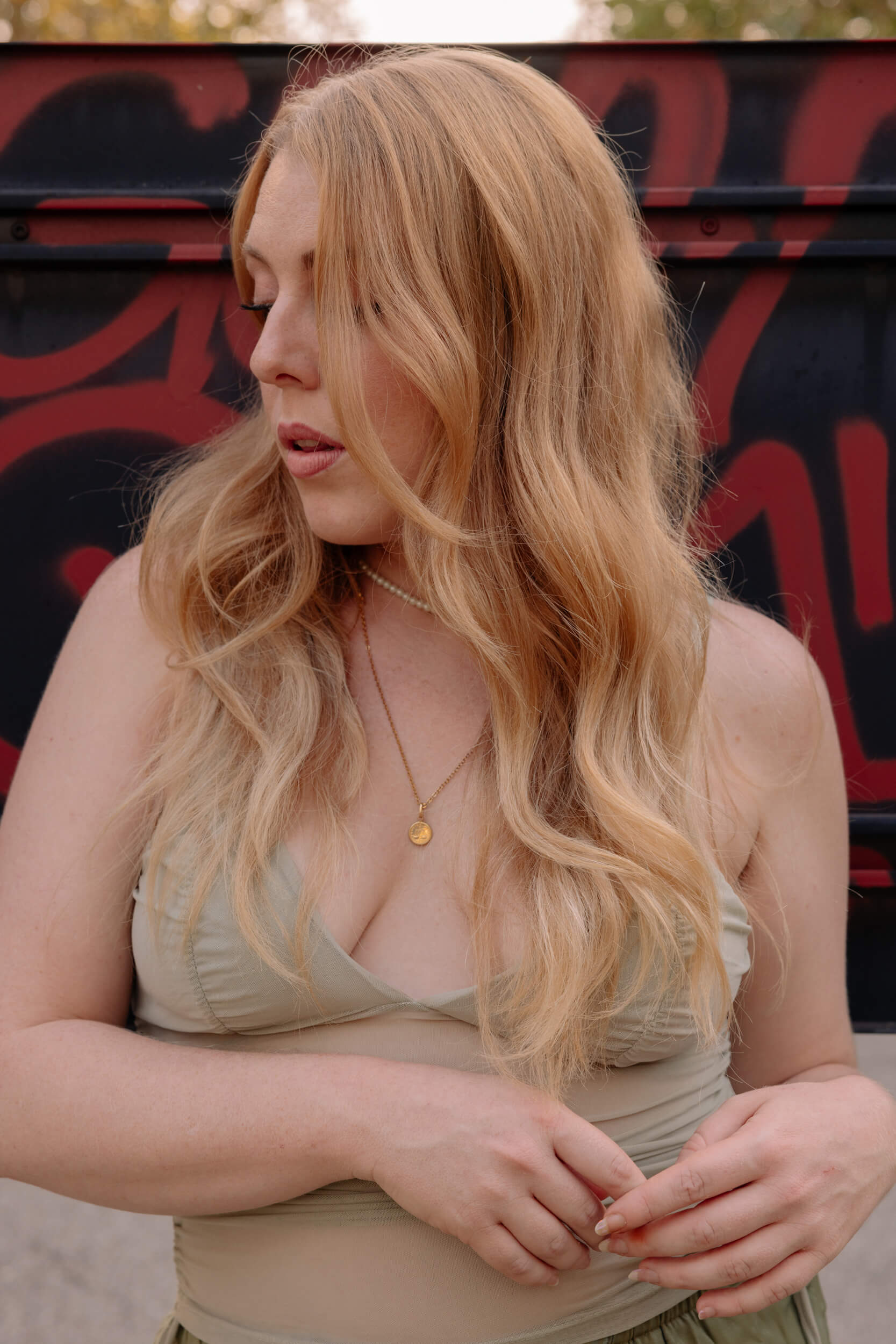
“Entertainment, cinema, and theater should also tell our stories.”
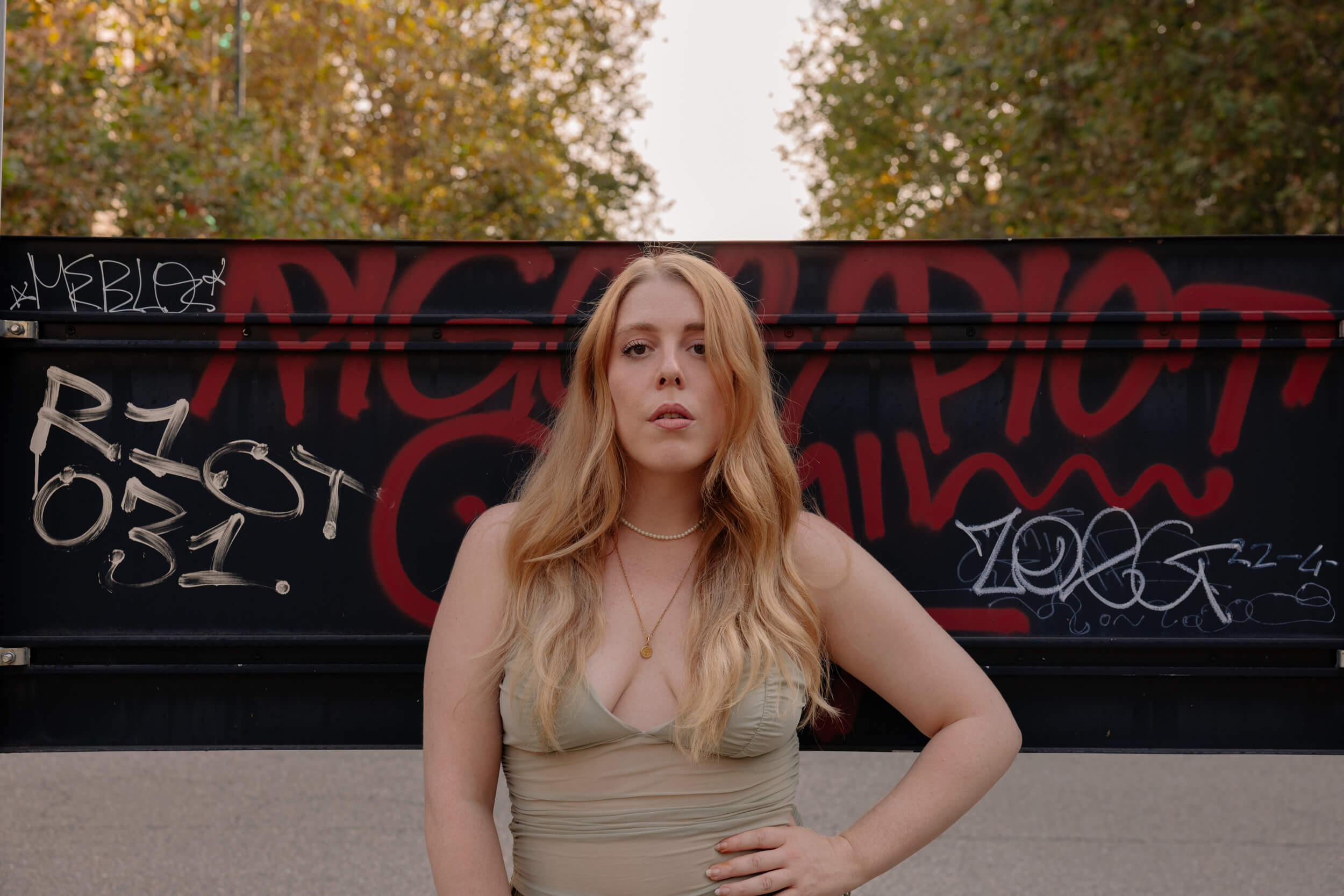
What is your stand-up comedy writing process? Have you ever thought of writing a screenplay?
Yes, absolutely, it’s a dream that doesn’t even fit in the drawer anymore; I took it out of the drawer because I want to let it breathe. I know it will take time. I don’t handle the writing part alone; I always work with Donato, who is my colleague; we have a lot of fun, and we hope to go beyond. In the meantime, we managed to write a book, and we are already satisfied with having tried a different type of writing. Social media and web writing are very fast but also need to be very comprehensive, while different formats like a book or even a slightly longer video we made on YouTube allow us to tell our story in more detail and also more artistically. So, maybe even going further, offline, and trying to write something like that. I would really like that.
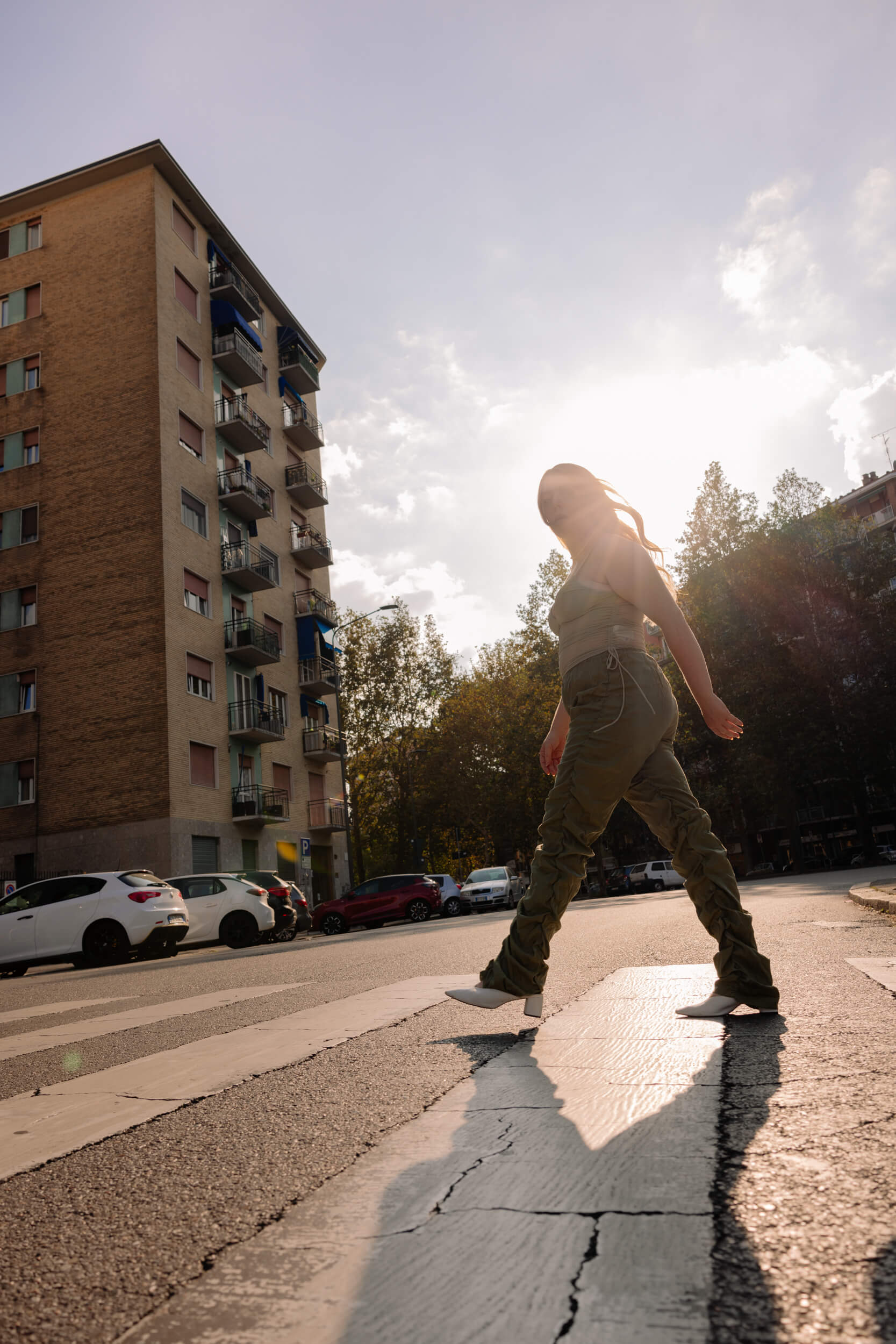
Are there rituals/habits you do every day to “connect” with yourself, or is it something that comes naturally to you?
I guess no; I don’t have rituals and routines. In fact, I am a very non-routine person. I often change the times I have lunch or dinner, go to bed late and wake up early; I am very disorganized, and in my disorder, I find my peace, I think! [laughs]
Have you ever felt lonely? If so, how do you face loneliness? Or do you sometimes seek it? For me, for example, a ritual would be to spend a bit of time alone every day, even if I almost never manage, but it’s my only way to recharge.
From this point of view, I understand you because I work in a team, so I never have a moment for myself. So, I never feel lonely, on the contrary, I am very happy because working alone sometimes doesn’t give you the perception of what you are doing, but other voices always help you improve even something that was perfect for you, and then you realize that it’s not that much and can become even more. I would also like to find moments of solitude because it’s nice to reclaim a bit of oneself, maybe even sort out ideas. But it’s difficult, very difficult in this hectic life, and especially sharing my work with my partner, but we try.
“…it’s nice to reclaim a bit of oneself”
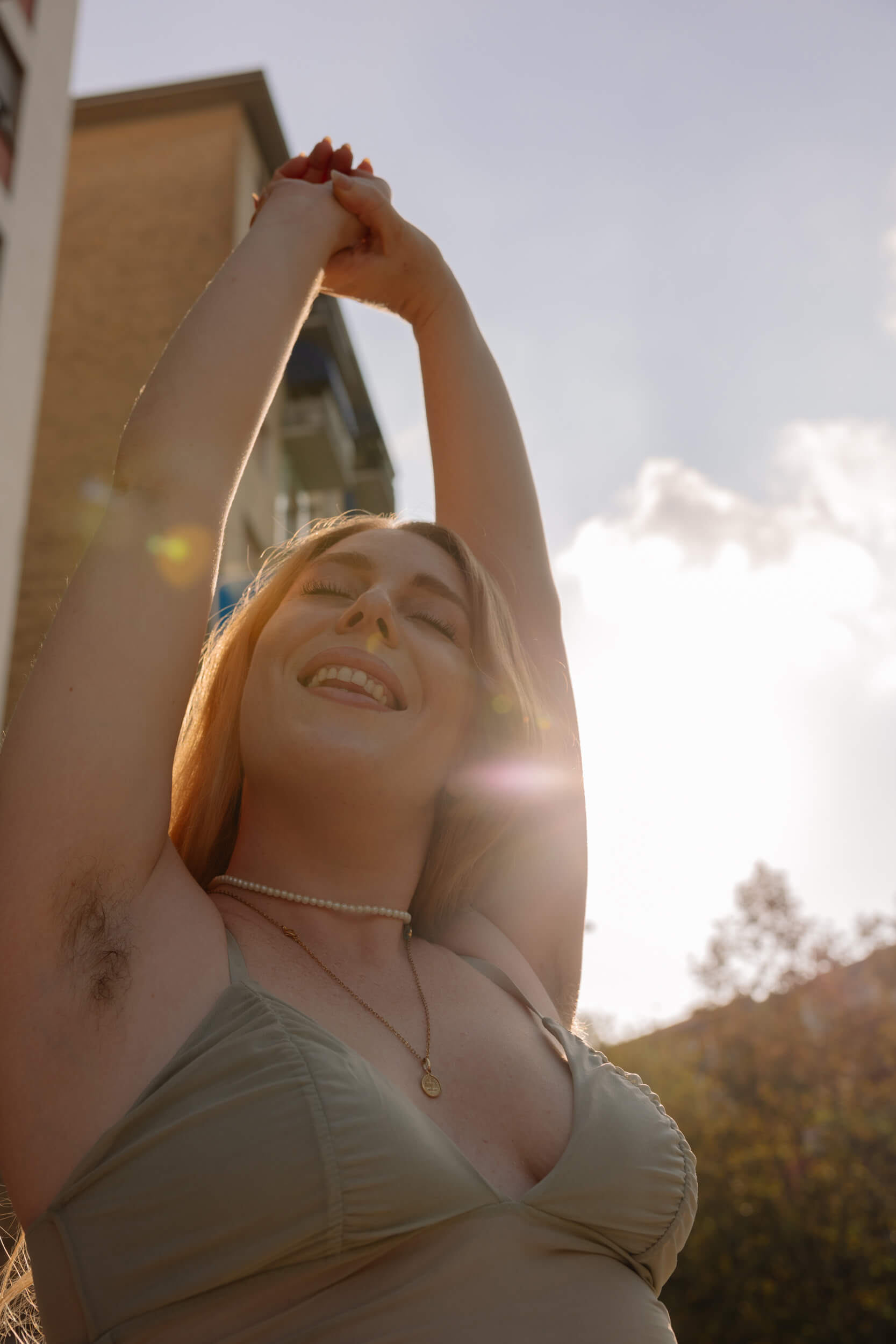
Instead, what’s the best “fuck you” you’ve said so far?
Several come to my mind. Definitely personal ones, for all those people who identified me with my body and nothing else, so they stopped at judging it as “fat” without ever getting to the point. Every now and then, there have been some work-related ones too, if I think back to the times when they told me things like, “A woman is not so fun, a woman doesn’t do comedy”. Then, internal ones, they come out a lot [laughs].
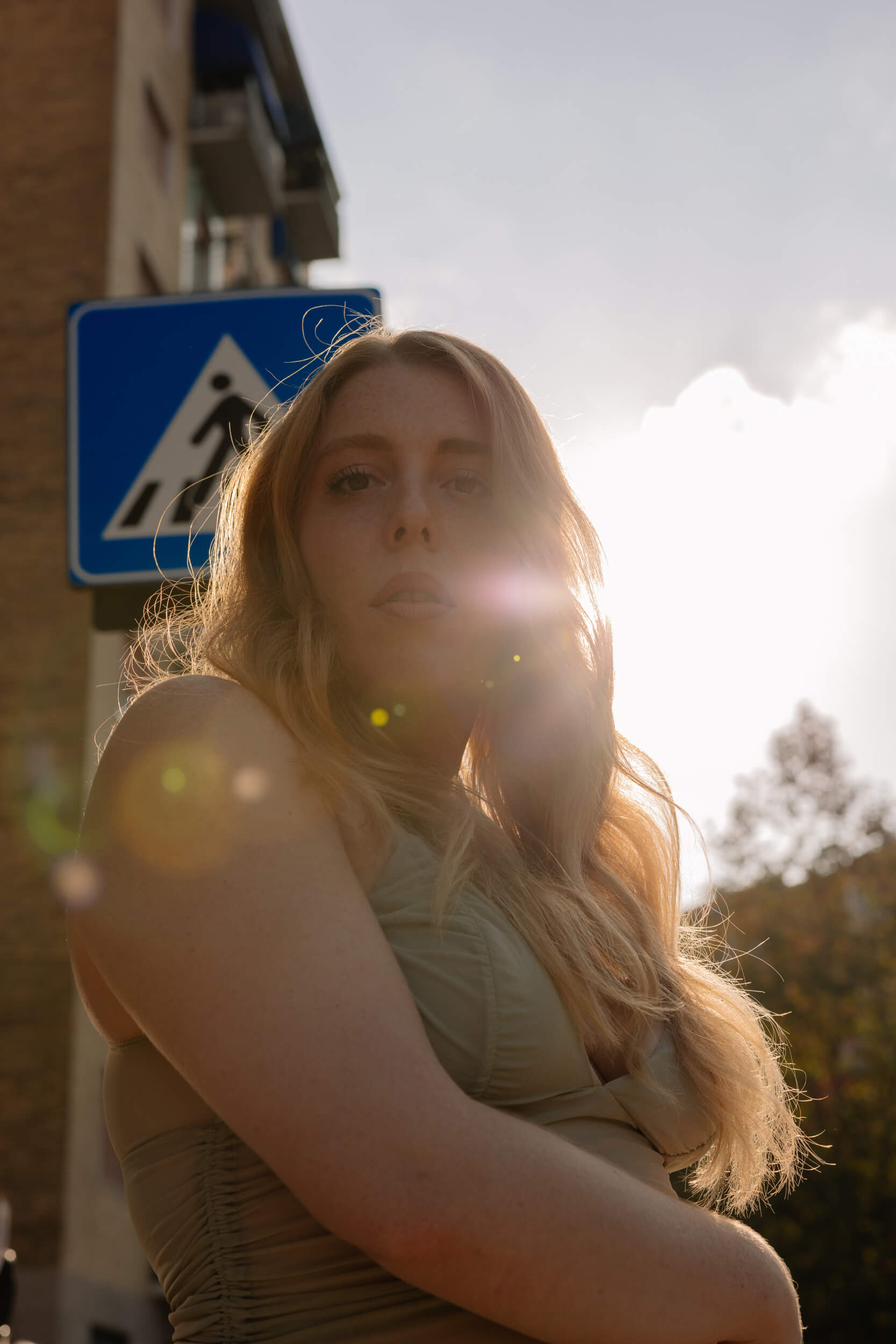
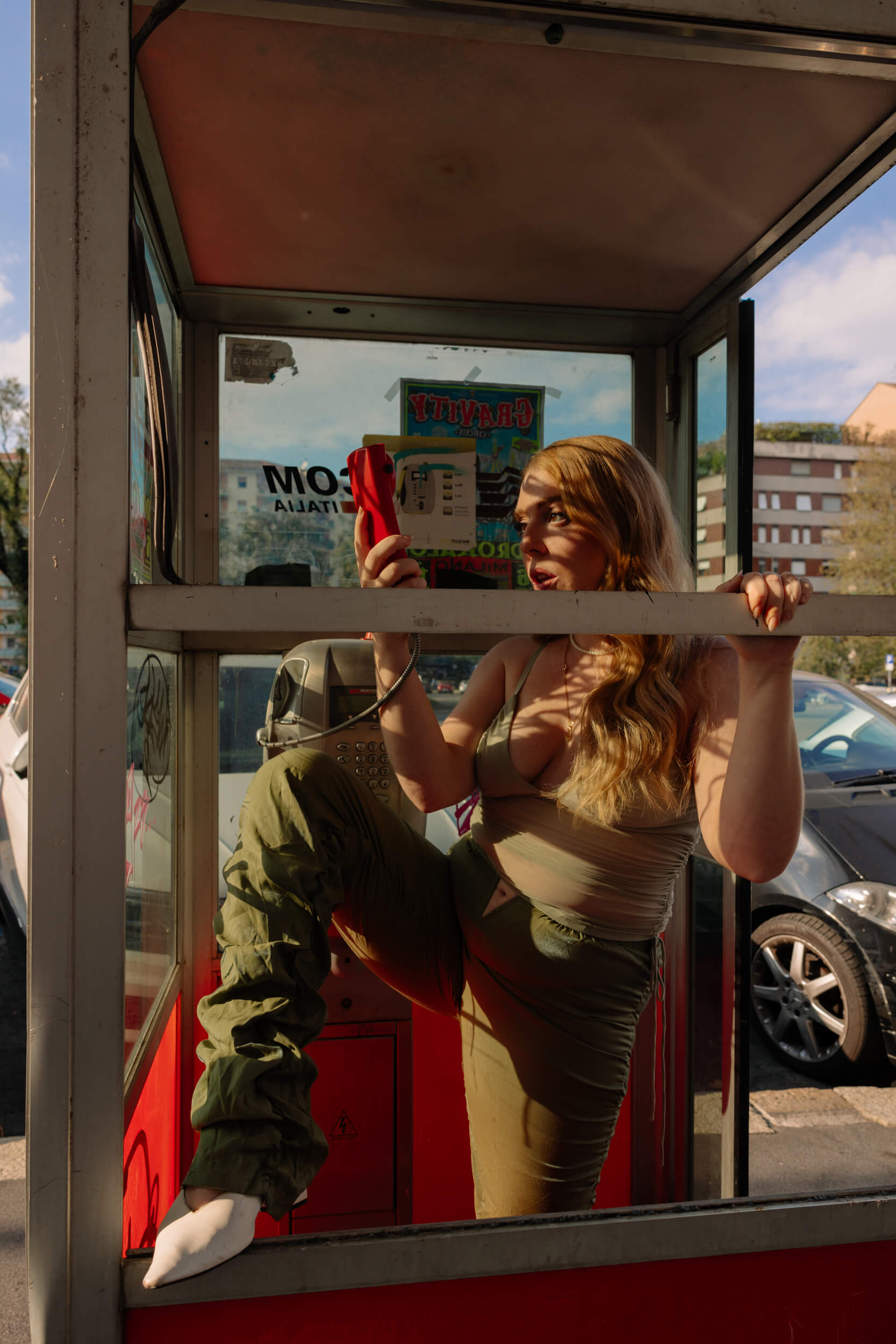
What’s your happy place?
I don’t have a specific one. I like to travel, especially in summer when I go on very long trips; they become my happy place. I challenge myself even in those cases, leaving without having a precise path to follow, abandoning myself a bit. It’s nice because at some point, you lose the sense of time; you don’t know how long you’ve been traveling, and it feels like you’ve been around for a lifetime and that you don’t have a home, and every day you have to challenge yourself. Maybe that’s my happy place, when I stimulate myself in those moments.
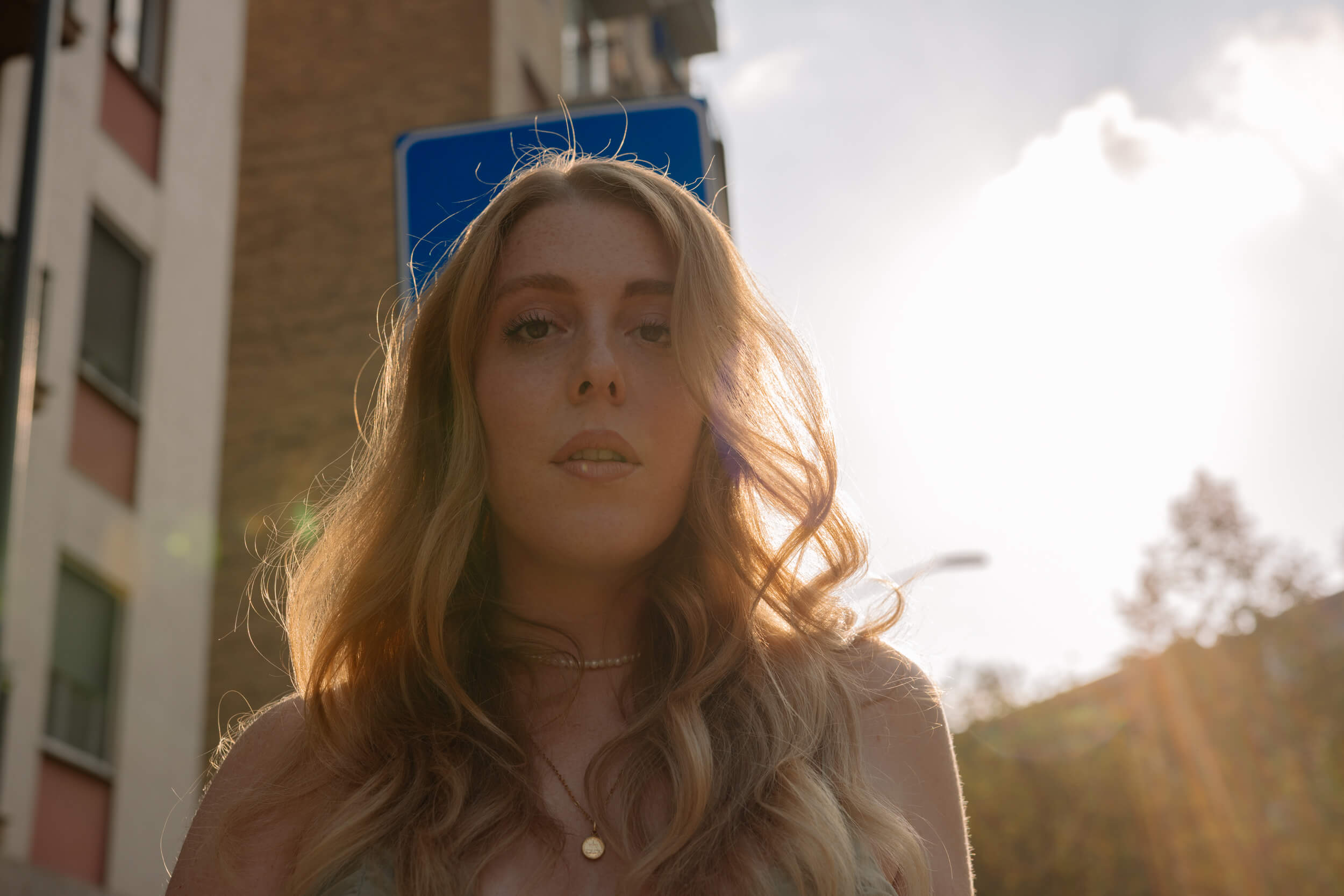
Speaking of writing, I also write a lot, both for The Italian Rêve and on my own, and sometimes I realize that immersing oneself in someone else or making one’s character or oneself live new paths, you discover new things about yourself every time. What’s the last thing you have learned about yourself through writing, or through your work in general?
I’ve learned a very important thing: that I often seek approval. It’s much easier to seek approval, so I avoid putting myself in certain positions that I know I would have to explain because I think in a certain way, and I know that the audience to whom my message will reach won’t perceive it that way because there may be a deep-seated preconception that a certain thing is true, so if I present it in another way, you won’t like it. I realized that I probably prefer to have approval, to look for something for which I know for sure I will receive recognition or even just understanding from the other side. I’ve actually realized this through writing: when, for example, I create a character different from me who engages in dialogue with myself, it’s much more difficult because I realize that I would scold myself. Writing, therefore, has helped me understand this about myself.
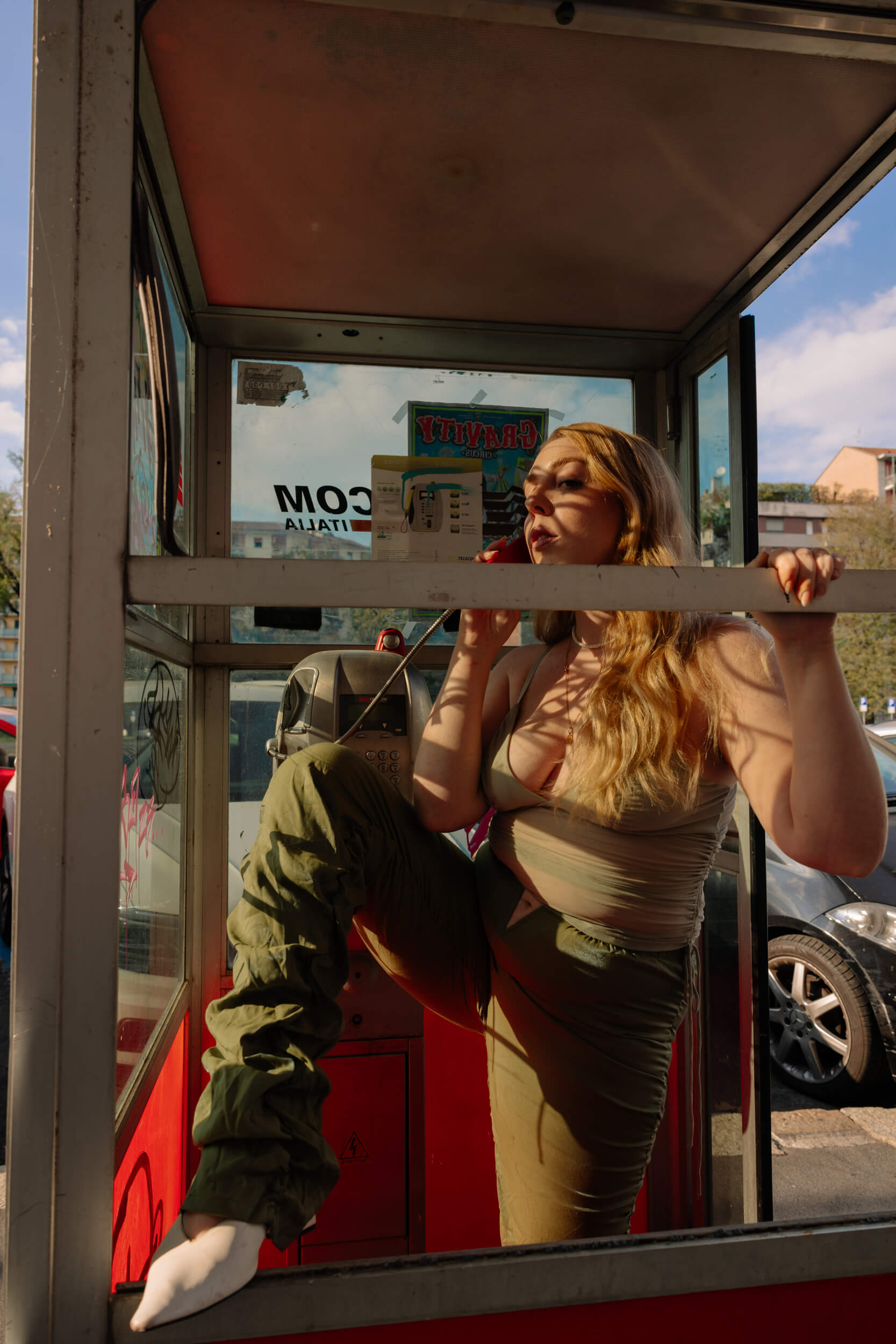
“I often seek approval”
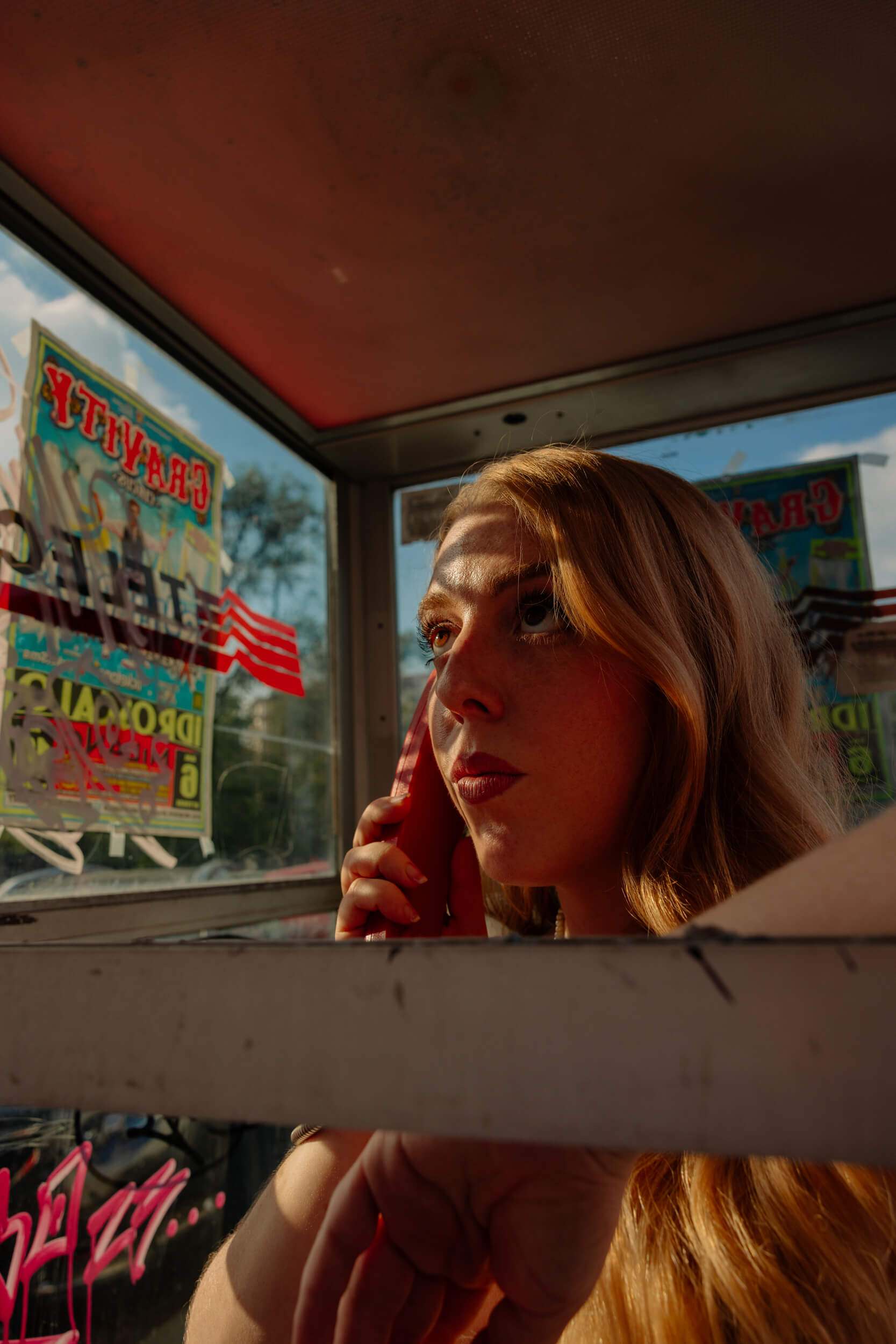
What’s the bravest thing you have ever done?
Apologizing. I think apologizing is one of the bravest things you can do, like that girl I was telling you about before. I don’t know if something like that happened to me, I don’t know if with someone I didn’t know, I would have laid myself bare to say, “Forgive me, I’m sorry, I was wrong”. With someone you know, maybe it’s easier because you want to mend a relationship, and you realize the need to apologize. It’s about coming to terms with yourself and realizing that it wasn’t the right move.
What scares you the most, instead?
Cockroaches [laughs].
Then, I have a bad relationship with death. I am very scared of the death of the people around me, so I fight with the thought, “What if something happens? What if this were the last moment?” Once you get to know it a bit more closely, you carry it with you a bit. In the end, death is the only true thing, the only certainty we have is that we will die; it would be foolish to pretend that it’s not like that and forget about it, so it’s normal that every now and then that thought enters and makes us realize that time is passing.
When do you feel most comfortable in your own skin?
I almost always feel comfortable in my skin. I realize that I love myself to death because it’s the moment when I feel completely myself, when I’m in a group of people I know, friends I can relate to, and especially with whom I can share moments. I love the idea of a group, and perhaps in those moments, I really feel myself.
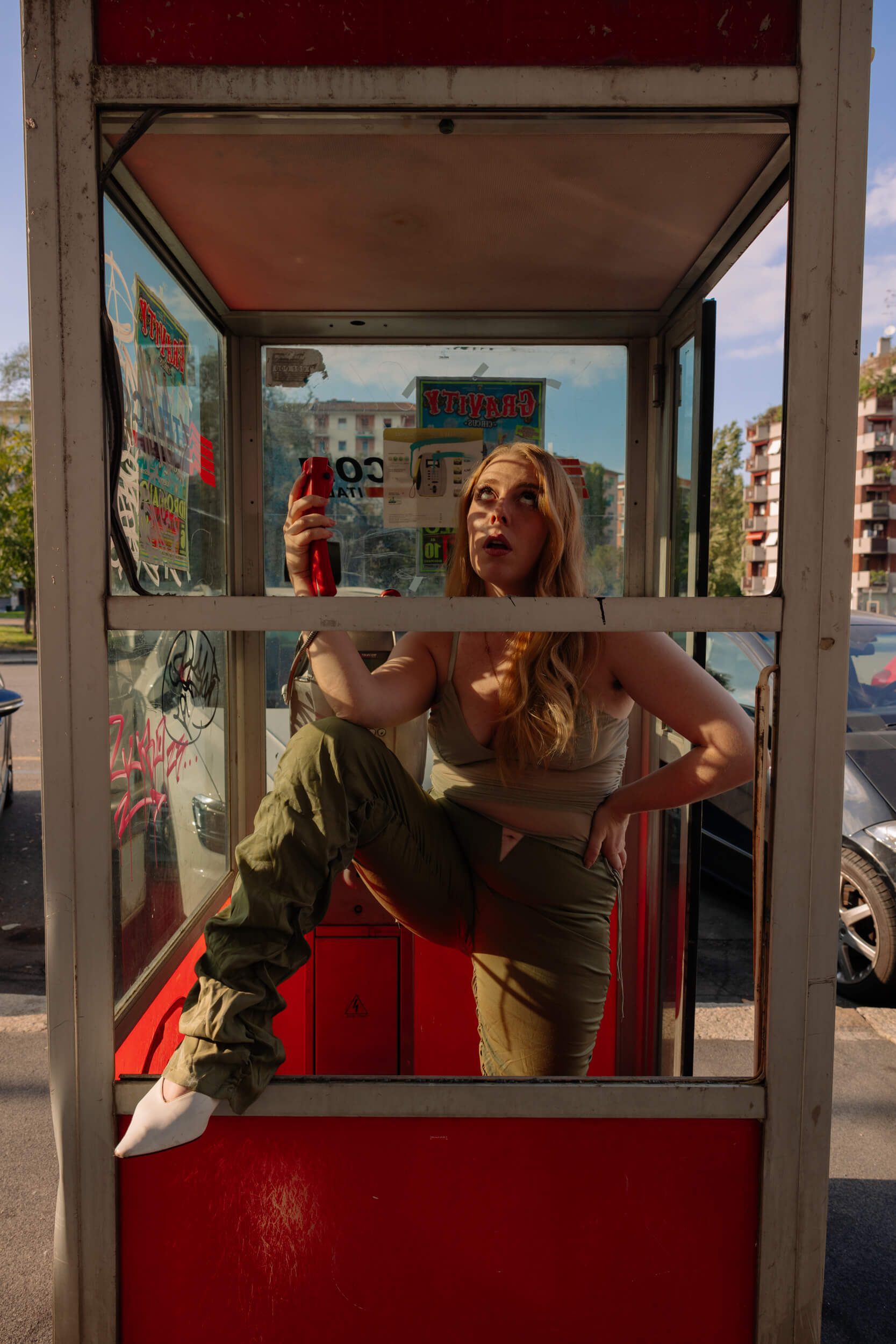
Photos by Johnny Carrano.
Thanks to Sparkle Agency.

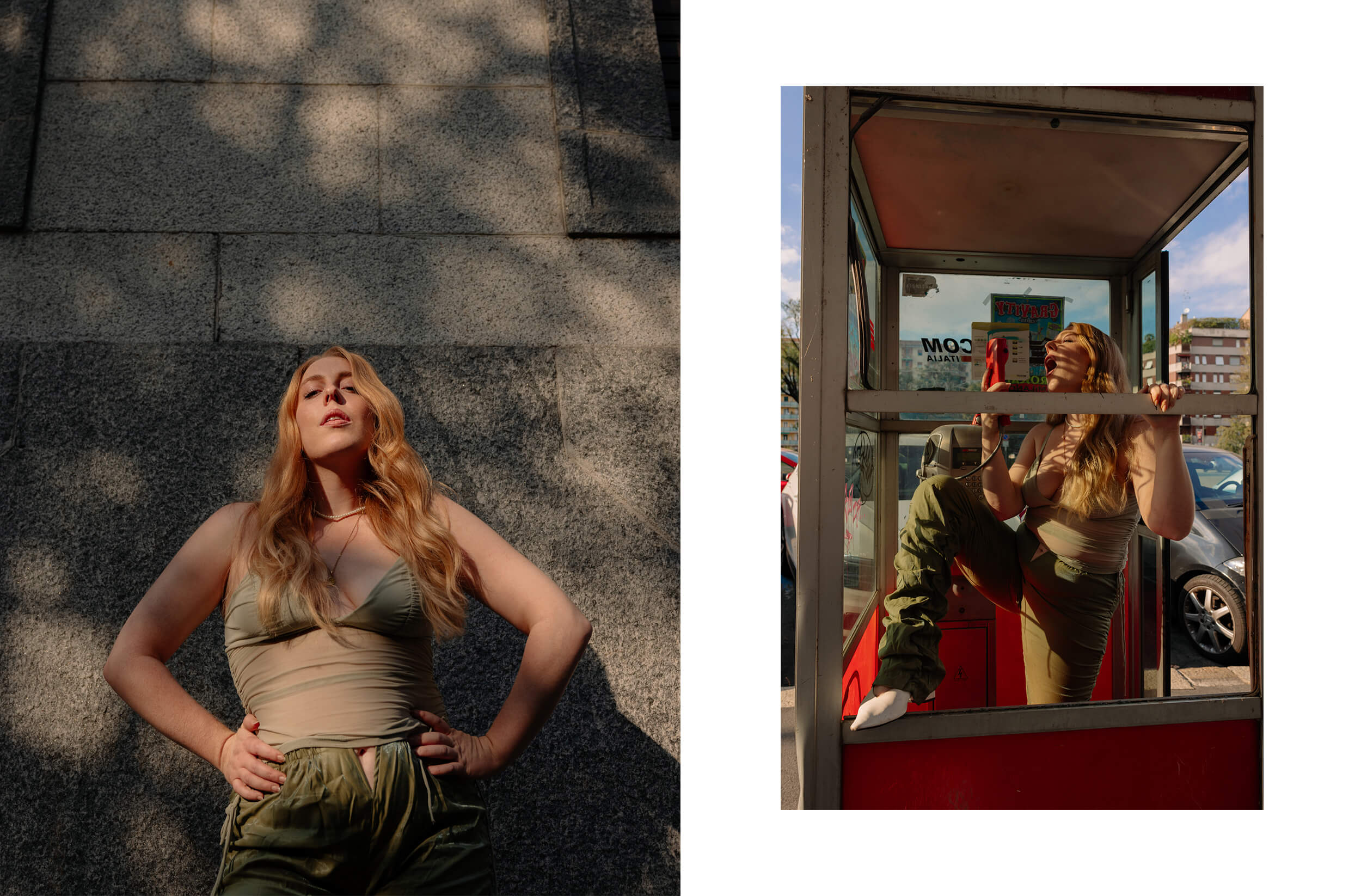
![Interview with Dr. George Gaitanos [Chief Operating and Scientific Officer of Chenot]: Giving meaning to time](https://www.theitalianreve.com/wp-content/uploads/2025/04/LAlbereta-dalla-Vigna-Leone-300x200.jpg)

